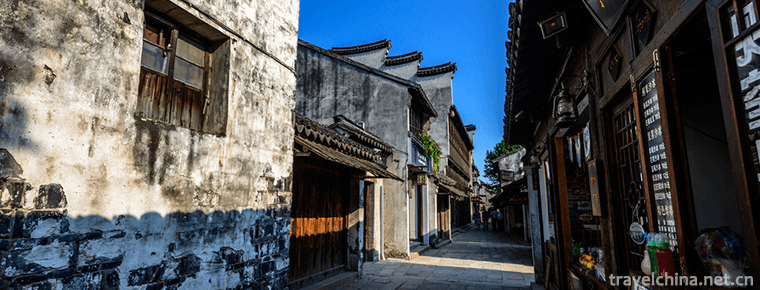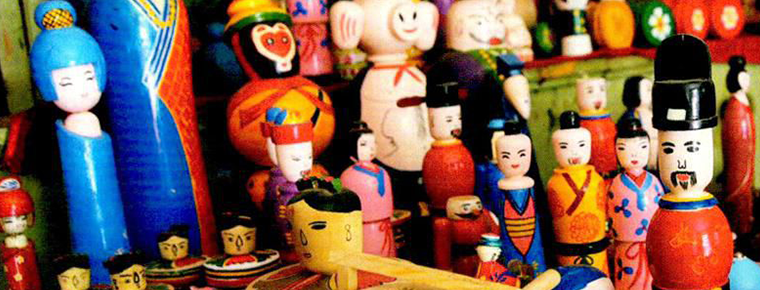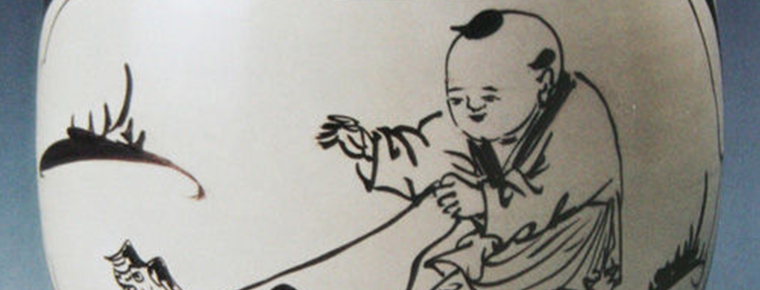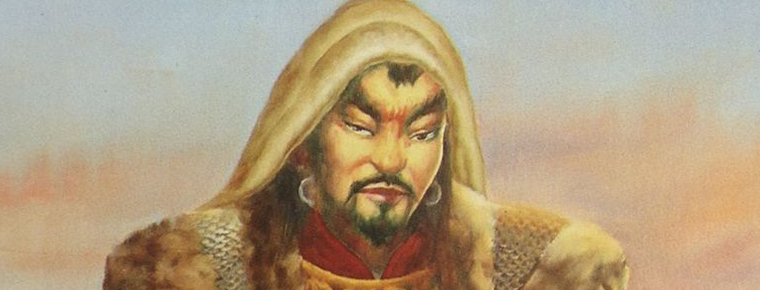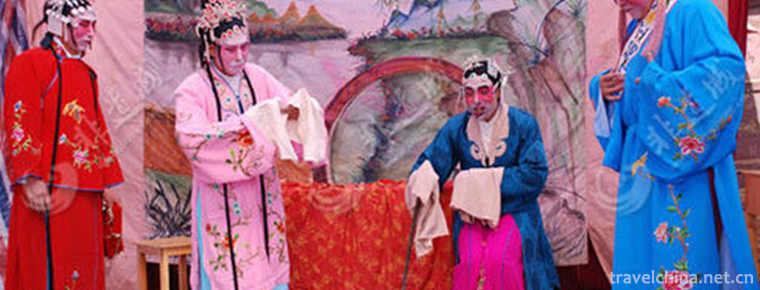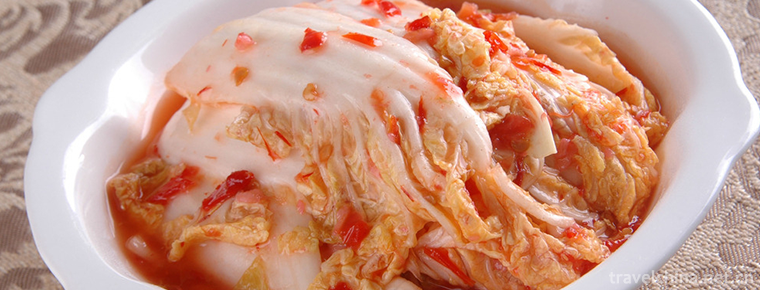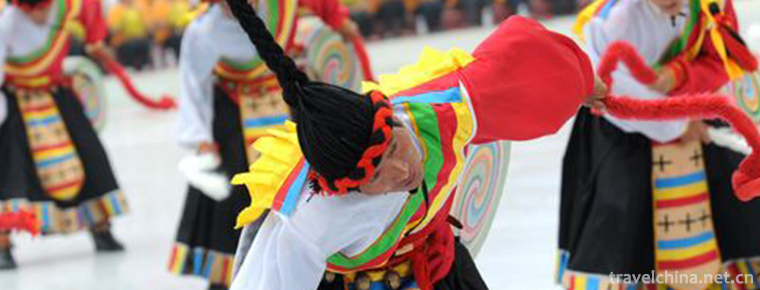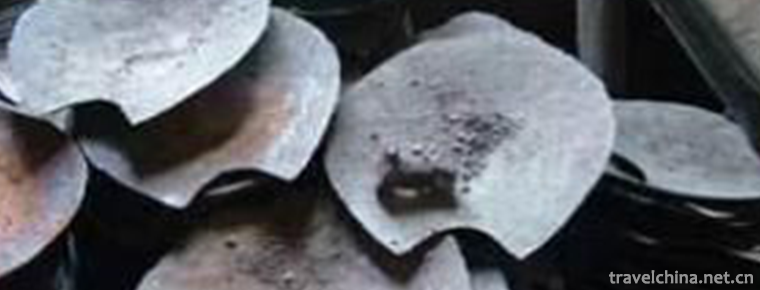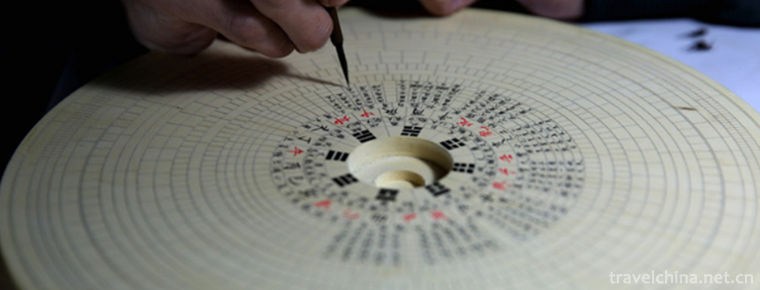Eyebrow household
Eyebrow household
Eyebrow households, distributed in Shanxi, Shanxi, Shaanxi, Gansu, Western Henan and other provinces, also known as "Eyebrow Shao" or "confusion", are named for their euphemistic melody and fascinating artistic charm. Its tribute tune is mainly composed of minor tunes, commonly known as "opera" and literati used to call it "Qingqu" .
Where the eyebrow household originated has not yet been documented, and artists have passed it down from generation to generation with different opinions. Formed in the Qianlong period of the Qing Dynasty, it prevailed in Guanzhong, Shanxi, Henan, Hubei, Sichuan, Gansu, Ningxia, Qinghai and parts of Xinjiang. Modern eyebrow households have two ways in Guanzhong. Eastern Meihu is prevalent in Huayin City and Huaxian County. There is a popular saying that "the line of Bangzi Buyang in Tongzhou is passed down from Meihu in Erhua to the world". Meihu on the west road was first prevalent in Meixian and Huxian (today's "Maoyi District") and was named "Meihu". Twelve Sickles, Liang Qiuyan, Apricot Flower Village, Late-blooming Roses, Aunt-in-law in Northern Shaanxi, Butcher Zhuangyuan, Leaving True Love and other plays are representative.
In 1949, the Chinese Youth Delegation, invited to perform "Twelve Sickles" in Moscow and Budapest, won the attention and praise of the international theatrical circles. In 1955, the Shaanxi Academy of Traditional Opera performed the modern drama Liang Qiuyan, which was awarded as a long-term preservation. In 1982, the large-scale Meihu Opera "Xinghua Village" was produced by Xi'an Film Studio as an opera art film and released nationwide. In 1999, Chen Yan's modern drama "Late Opening Rose" was rated as the top ten excellent plays in the national stage art project. On June 7, 2008, Meihu Opera was approved by the State Council to be included in the second batch of national intangible cultural heritage list . In 2010, the Meihu in southern Shanxi Province, declared by Linfen City, Shanxi Province, was included in the third batch of national intangible cultural heritage list.
Origin of drama
Meihu Opera is one of the main operas in Shaanxi Province. It is spread in the west of Henan Province and the south of Shanxi Province. It also extends to Gansu, Ningxia, Qinghai, Xinjiang and other places, and prevails in Guanzhong area. The eyebrow household is also called "eyebrow" or "confused". There are different opinions about the origin of Mei Hu Opera.
Meihu Opera's tone and tribute are mostly formed by absorbing the folk songs of Guanzhong in Ming and Qing Dynasties. Legend has it that Kanghai, the first champion of Wugong County in the Ming Dynasty, devoted himself to the cause of Qin Opera after Liu Jing's case was implicated in his hometown. He set up his own "Kangjia Ban Society", advocated the voice of Qin Opera, composed music, wrote plays and practiced singing, and was respected as the originator of Qin Opera and Meihu. Meihu Opera came from Sanqu. Kanghai created more than 500 Sanqu pieces. After Kanghai's sudden encounter with his deceased wife, son and daughter-in-law, his spirit suffered a heavy blow. The songs hummed in the dusk were recorded by two concubines and daughters-in-law. He then screened and classified them into major and minor tunes, with pipa, banhu, border drum and sea flute as musical instruments. Theatre, then became popular in the five northwest provinces of Meihu Opera .
Shaanxi Meihu can be divided into two ways: East Meihu originates from Huayin and Huaxian. Because of its melodious and charming tunes, Shaanxi has the idea of "Hu" as a "drama", so it is called "Mahu", which means a charming drama. Huayin and Huaxian were the regions of Zheng State in Zhou Dynasty, and the eyebrow households might be influenced by Zheng Sheng. There is a popular saying that "the line of Bangzi Buyang in Tongzhou and that of Erhua Meihu in the world" . According to legend, Meihu County on the West Road originated from Meixian County and Huxian County (H) at the foot of Taibai Mountain in Shaanxi Province, so it is called "Meihu" and Meihu Qu originated from Shaanxi folk songs, which was called "Qing Tune" in ancient times. Based on love songs, pastoral songs, woodcutter songs, fishing songs, minor tunes and nursery rhymes in folk songs, Xiaoling and divertimento of the Yuan Dynasty were introduced into them in the Ming Dynasty. After a long period of evolution and continuous processing, they developed into a kind of opera art.
Protection status
Mei Hu Opera is one of the intangible cultural heritage of the country. Traditional opera mainly consists of amateur folk performances, with few professional performing groups. With the change of society and the diversification of entertainment, the living space of opera has become smaller and smaller, and it is now on the verge of being lost.
In 2008, Meihu households declared by Huayin City of Shaanxi Province and Linyi County of Shanxi Province were included in the second batch of national intangible cultural heritage list .
In 2010, Meihu in southern Shanxi Province, declared by Linfen City, Shanxi Province, was selected as the third batch of national intangible cultural heritage list .
In December 2014, the State Council approved the publication of the fourth batch of national intangible cultural heritage catalogues determined by the Ministry of Culture, and Shaanxi Meihu, which was declared by Shaanxi Opera Research Institute, was successfully selected. On May 25, Shaanxi Academy of Traditional Opera was awarded the plaque "Meihu, a representative project of national intangible cultural heritage" by the State Council and the Ministry of Culture.
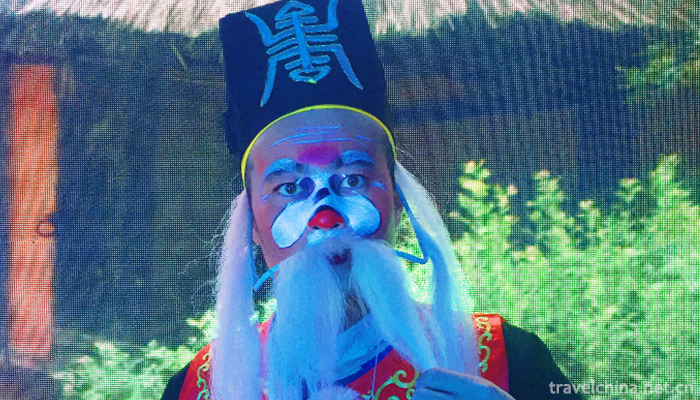
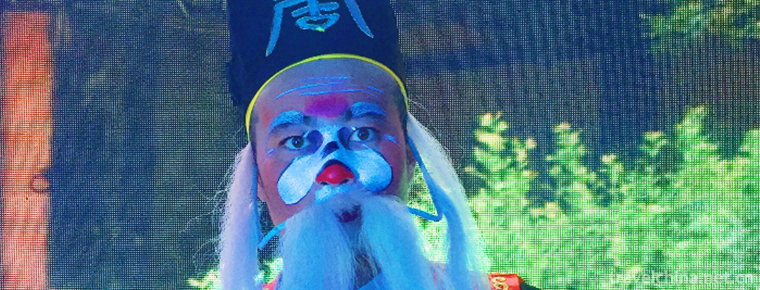
Eyebrow household
-
Nanxun ancient town Scenic Area
Nanxun Ancient Town is located in Nanxun District of Huzhou City, at the junction of Jiangsu, Zhejiang and Shanghai provinces.
Views: 240 Time 2018-12-07 -
Traditional Toys Tancheng Wooden Rotary Toys
Tancheng Wooden Rotary Toy is an ancient traditional handicraft. Originated in Fanyuan Village, north of Gangshang Town, Tancheng County, Linyi City, Shandong Province, it is commonly known as "p
Views: 194 Time 2019-04-21 -
Sintering Techniques of Cizhou Kiln
Cizhou kiln firing technology, the local traditional firing technology of Fengfeng mining area in Hebei Province, is one of the national intangible cultural heritage.
Views: 126 Time 2019-04-22 -
Jangar
Jianger Jianger, the local traditional folk literature of Xinjiang Uygur Autonomous Region, is one of the national intangible cultural heritage.
Views: 141 Time 2019-05-05 -
Brow tune
Meihu Opera is a local traditional drama in Shaanxi Province. From the development of the floor stall rap and social fire, the floor stall and social fire performances always focus on singing. Its act
Views: 175 Time 2019-06-01 -
Kimchi Making Skills Korean Kimchi Making Skills
Kimchi of Korean nationality is one of the traditional food with the most national characteristics of Korean nationality, and its pickling method is constantly enriched and developed. In the long hist
Views: 313 Time 2019-06-09 -
Guozhuo Dance in Shannanchang
Shannanchang Guozhuo Dance is a kind of waist drum, which originated in Dabu (now Jiacha) area. Legend has it that in the mid-eighth century, with the help of Buddhist masters such as lotus and peanut
Views: 209 Time 2019-06-13 -
Pig Iron Smelting and Casting Technology
Yangcheng pig iron casting technology was invented in the 6th century BC. Yangcheng pig iron smelting and casting technology in the smelting and casting process first crushed the ore, then roasted at
Views: 305 Time 2019-06-14 -
Manufacturing Techniques of Fukushima Ship with Watertight Cabin
The manufacturing technology of watertight compartment Fukushima, the local traditional handicraft technology of Jiaocheng District in Jinjiang and Ningde City, Fujian Province, is one of the national
Views: 162 Time 2019-06-15 -
Manufacturing Techniques of Wanan Compass
Wan'an compass making technology, the local traditional handicraft in Xiuning County, Anhui Province, is one of the national intangible cultural heritage.
Views: 159 Time 2019-06-26 -
Laojunshan scenic spot in Pingshan County
Laojunshan scenic spot in Pingshan County is a provincial scenic spot approved by the people's Government of Sichuan Province. It is located on the southern edge of Sichuan Basin and is located on the arc-shaped tourism line of Chengdu Emei
Views: 175 Time 2020-10-16 -
Dazhou Railway
Railway lines: Chengdu Chengdu Railway, Xiangyang Chongqing railway, Dazhou Wanzhou railway, Daba railway and Chengdu Dazhou Wanzhou high speed railway (planned)
Views: 94 Time 2020-12-20
